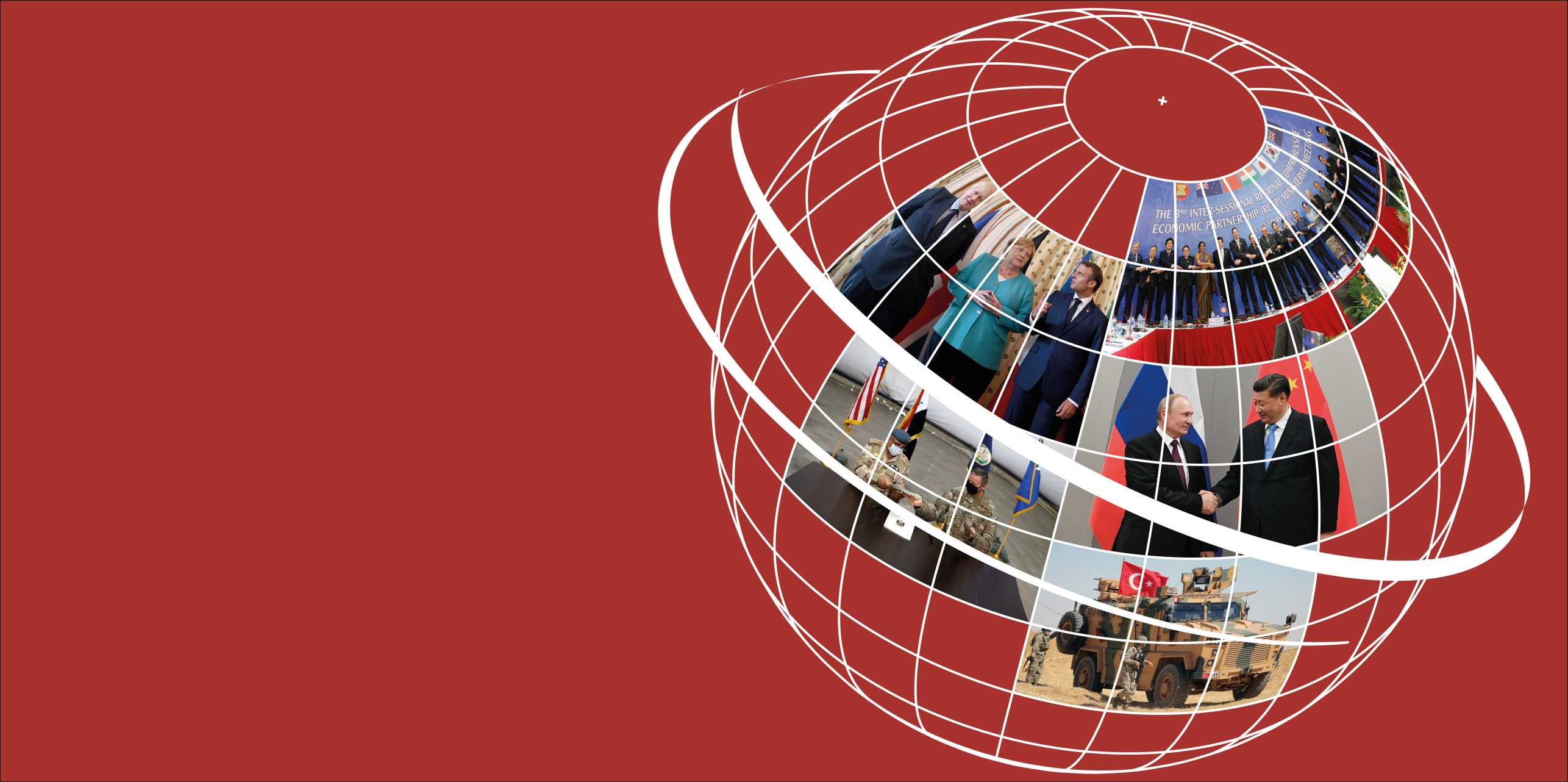Strategic Trends 2021: New Power Configurations and Regional Security
Strategic Trends 2021 offers a concise analysis of major developments in world affairs, with a focus on international security. It features chapters on China-Russia relations and transatlantic security, Franco-German-British security cooperation after Brexit, Turkey’s power projection in the Middle East and beyond, Europe and major-power shifts in the Middle East, and Japanese and South Korean perspectives on changing power configurations in Asia.

As 2021 unfolds, major trends in world politics are leading to rapid changes in the international order. These trends have been under way for some time now, but the coronavirus pandemic has accelerated them. Great-power competition is resurgent, and dangerous crises threaten to erupt in regions around the world, perhaps simultaneously. As the preparation of this volume was entering its final stages, US President Joe Biden’s administration faced both a Chinese pressure campaign against Taiwan and a Russian buildup of forces along Ukraine’s eastern border. Such developments reflect new power configurations and their effects on regional security, which are the theme of this volume.
Chapter 1: China-Russia Relations and Transatlantic Security
By Brian G. Carlson
The China-Russia relationship is an increasingly important factor in transatlantic security. Russia and China pose security challenges to the Euro-Atlantic region in distinct and mostly uncoordinated ways, but their partnership allows both countries to pursue spheres of influence close to home. The United States and its allies will therefore face growing security challenges in both the Euro-Atlantic and Asia-Pacific regions. The rise of China will force the United States to devote increased attention and military assets to Asia, underscoring the need for a strengthened European pillar in NATO.
Chapter 2: Franco-German-British Security Cooperation After Brexit
By Julian Kamasa
The departure of the United Kingdom from the EU has considerable implications for the European security architecture. Although the UK continues to be part of NATO, it might not suffice to use NATO as a forum for comprehensive coordination, since it is primarily a military alliance. Therefore, new settings for the coordination of essential policies between London and its key European partners seem necessary. In the short and medium terms, a trilateral form of security cooperation among France, Germany, and the UK such as the E3 could bridge the gaps created by Brexit.
Chapter 3: Turkey’s New Outlook: Power Projection in the Middle East and Beyond
By Niklas Masuhr
Turkey’s military operations in 2020 and beyond lie at the intersection of a more activist and autonomous foreign policy, the continuous mutation of the country’s guiding ideologies, increased autocracy at home, and an expeditionary military machine 25 years in the making. Trends and shifts in both the short and long terms, from changing government coalitions in Turkey to the Syrian civil war, help to explain the erstwhile Kemalist Republic’s accelerated transformation, both internationally and domestically, as well as its likely strategic implications.
Chapter 4: Europe and Major-Power Shifts in the Middle East
By Lisa Watanabe
As the US scales down its ambitions in the Middle East, Russia has returned to the region, and China’s engagement too is on the rise. Such shifts in great-power engagement are generating increased regional instability, as well as enhancing the capacity of China and Russia to shape outcomes in the Middle East. These developments risk undermining Europe’s ability to promote its interests and normative agenda.
Chapter 5: Japan and South Korea: Adapting to Asia’s Changing Regional Order
By Linda Maduz
Small and middle powers in Asia find themselves in a key arena of accelerating great-power competition. Nowhere are the economic dominance and politico-military ambitions of a rising China more evident and nowhere is the potential for military escalation between China and the US greater than here. Much sooner than in other regions of the world, countries in Asia have had to position themselves in the growing US-China rivalry. The experience of Japan and South Korea shows that middle powers have a role to play in shaping the rivalry, and thereby in shaping their own regional strategic environment.